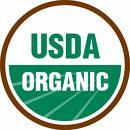Ozarks Natural Foods is one of the few USDA certified organic vegetable producers in Southwest Missouri

ONF produces carrots, lettuce, spinach, strawberries, sweet corn, watermelon, canteloupe, green beans, peas, cucumbers, peppers, and okra. ONF produce is USDA certified organic by OneCert, Inc.
What is organic farming?

Organic farming is the form of agriculture that relies on crop rotation, green manure, compost, biological pest control, organically approved pesticide application and mechanical cultivation to maintain soil productivity and control pests, excluding or strictly limiting the use of synthetic fertilizers and synthetic pesticides, plant growth regulators, livestock antibiotics, food additives, and genetically modified organisms. Since 1990, the market for organic products has grown at a 20% annual rate to reach $46 billion in 2007.
Are there any health benefits to eating organic meats and produce?
Two studies have found that children fed organic diets experienced significantly lower organophosphorus pesticide exposure than children fed conventional diets. Although the researchers did not collect health outcome data in this study, they concluded "it is intuitive to assume that children whose diets consist of organic food items would have a lower probability of neurologic health risks". A 2010 study associated these pesticides with an increased risk for ADHD. A 2007 study found that consumption of organic milk is associated with a decrease in risk for eczema, although no comparable benefit was found for organic fruits, vegetables, or meat.New study finds link between pesticide exposure and ADHD
A new study out this month has linked Attention Deficit Hyperactive Disorder (ADHD) with organophosphate pesticide exposure. Organophosphates are a commonly used pesticide in many agricultural crops, with 73 million pounds being applied in 2008 alone. The US Pesticide Residue Program Report showed that the organophosphate pesticide malathion showed up in 28% of commercially-produced blueberries, 24% of strawberries and 19% of celery in 2008.
This new study, carried out by Dr. Maryse Bouchard of the University of Montreal and her colleagues at Harvard, sampled 1139 children, 119 of which met the criteria to be diagnosed with ADHD. The researchers found that elevated concentrations of dialkyl phosphate metabolites in urine, which are markers of organophosphate exposure, are correlated with increased occurrence of ADHD.
These results give us a chance to revisit another related study that came several years ago. In 2006, Chensheng Lu of Emory University and his colleagues at the University of Washington and the Center for Disease Control, found that levels of malathion in children's urine rapidly began to decrease after the children were put on all organic diets.
Questions?: meera@ozarksnaturalfoods.com
